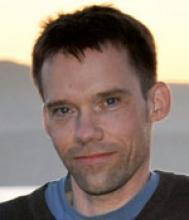Professor Fred Wolf's research brings new meaning to the term barfly.
In an effort to better understand the neurological effects of alcohol abuse, Wolf gives fruit flies alcohol and studies how their brains change.
"Alcohol taps into some of the most primitive circuitry of the brain, giving us a means to study how these circuits work," Wolf said.
Alcoholism remains a major public health problem. For example, hospitalizations for alcohol and drug overdoses increased dramatically among 18- to 24-year-olds between 1999 and 2008, according to a recent study by researchers at the National Institute on Alcohol Abuse and Alcoholism, part of the National Institutes of Health.
If scientists such as Wolf can better understand how drug dependency works, they can better develop cures and treatments.
"The level of complexity in the human brain is astounding," Wolf said. "Quite honestly, the complexity of the fruit fly brain is quite astounding too."
Like humans, fruit flies find alcohol rewarding. Flies also develop alcohol tolerance, allowing them, like us, to drink more.
In a search for genes connected with alcohol tolerance, Wolf and colleagues discovered that one of them is found exclusively in glial cells. He's further exploring the role of glia in alcohol tolerance with the support of a $932,619 grant from the National Institutes of Health.
In one project, Wolf is looking at glial cells, which make up 90 percent of the cells in a brain. Most research has focused on neurons — the remaining 10 percent of cells — because they process and transmit information. Researchers used to believe glial cells only supported neurons. However, studies are showing they're part of the communication process that occurs in a brain, Wolf said.
Wolf is investigating how alcohol affects communication between neurons and glial cells, and the role of glia in the complex alterations in brain function that accompany the development of alcohol tolerance.
Wolf joined UC Merced this year after working as a researcher at UC San Francisco's Ernest Gallo Clinic and Research Center. He was drawn to UC Merced by the opportunity to develop its academic and research offerings.
"I like the challenge of starting something new," he said.

